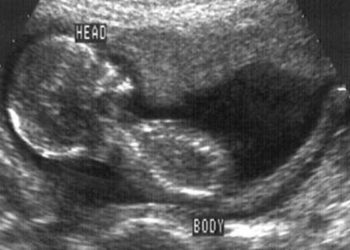Maternal folic acid supplementation during early pregnancy associated with lower risk of autism
Feb 12th – In a study published today, incidence of autism was found to be lower in children of mothers who took folic acid before and during early pregnancy.
[tabs tab1=”2MM Rundown” tab2= “2MM Full Report”]
[tab]
Image: PD
1. Incidence of autism was lower in children of mothers who took folic acid supplementation before and during early pregnancy.
Though widely speculated upon, the risk factors for development of autism are largely unknown; nonetheless, early gestation has been implicated as a period of critical susceptibility for increased risk of developing autism during life. In the present study, the authors demonstrate a significant inverse correlation between maternal folic acid supplementation during early gestation (4 weeks prior and 8 weeks following gestation) and later diagnosis of autism. Of note, this relationship was not noted with other autism spectrum disorders. There was also no significant association between folic acid supplementation at a later date relative to gestation (i.e. 22 weeks gestational age) and later autism diagnosis.
As the authors did not specifically record the doses of folic acid being taken, specific recommendations regarding the necessary dosage cannot be made from the results presented. Moreover, folic acid intake during the twelve week period of interest was not stratified in greater detail, preventing the authors from delineating the most critical period for supplementation. That said, their findings suggest that the early gestational period is at least one period of critical risk for later development of autism that may be mitigated by maternal folic acid supplementation.
Click to read the study in JAMA
[/tab]
[tab]
Image: PD
1. Incidence of autism was lower in children of mothers who took folic acid supplementation before and during early pregnancy.
This [prospective, population-based] study: The authors compiled data on 85,176 children born between 1999 and 2009 who were enrolled in the Norwegian Mother and Child Cohort Study. Only children of single gestations, born in the normal ranges of gestational age and weight, were included. Prenatal folic acid supplement intake and other nutritional information were assessed via questionnaire, focusing on the period from four months prior to conception (dated by last menstrual period) through 8 weeks gestation. Children with developmental abnormalities suspicious for autism spectrum disorders (ASDs) were confirmed via standardized diagnostic tests. When controlling for potential confounding factors, children born to mothers who took supplemental folic acid during the four weeks prior to and eight weeks following gestation were significantly less likely to be diagnosed with autistic disorder; however, no significant relationships were found between folic acid supplementation and other ASDs. Moreover, no similar relationships were found between other nutritional variables.
In sum: Though widely speculated upon, the risk factors for development of autism are largely unknown; nonetheless, early gestation has been implicated as a period of critical susceptibility for increased risk of developing autism during life. In the present study, the authors demonstrate a significant inverse correlation between maternal folic acid supplementation during early gestation (4 weeks prior and 8 weeks following gestation) and later diagnosis of autism. Of note, this relationship was not noted with other autism spectrum disorders. There was also no significant association between folic acid supplementation at a later date relative to gestation (i.e. 22 weeks gestational age) and later autism diagnosis.
As the authors did not specifically record the doses of folic acid being taken, specific recommendations regarding the necessary dosage cannot be made from the results presented. Moreover, folic acid intake during the twelve week period of interest was not stratified in greater detail, preventing the authors from delineating the most critical period for supplementation. That said, their findings suggest that the early gestational period is at least one period of critical risk for later development of autism that may be mitigated by maternal folic acid supplementation.
Click to read the study in JAMA
By John Prendergass Rif Rahman
More from this author: Energy drinks may be harmful to the health of adolescents, Early initiation of antiretroviral therapy linked with lower risk of cognitive impairment in HIV, The virtual lumbar puncture: MRI can predict CSF biomarker levels in patients with neurodegenerative disease, Intracranial pressure monitoring does not increase survival in patients with traumatic brain injury
© 2013 2minutemedicine.com. All rights reserved. No works may be reproduced without written consent from 2minutemedicine.com. Disclaimer: We present factual information directly from peer reviewed medical journals. No post should be construed as medical advice and is not intended as such by the authors or by 2minutemedicine.com. PLEASE SEE A HEALTHCARE PROVIDER IN YOUR AREA IF YOU SEEK MEDICAL ADVICE OF ANY SORT. Content is produced in accordance with fair use copyrights solely and strictly for the purpose of teaching, news and criticism. No benefit, monetary or otherwise, is realized by any participants or the owner of this domain.
[/tab]
[/tabs]





